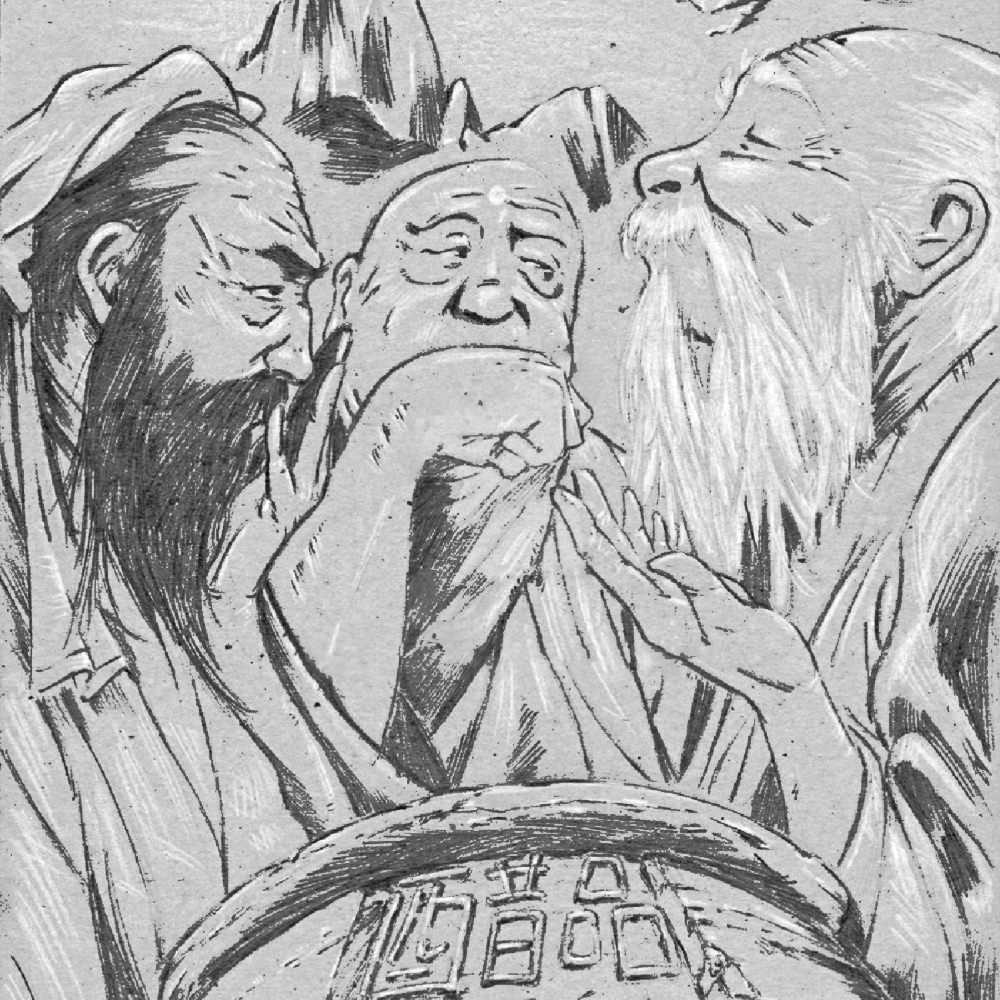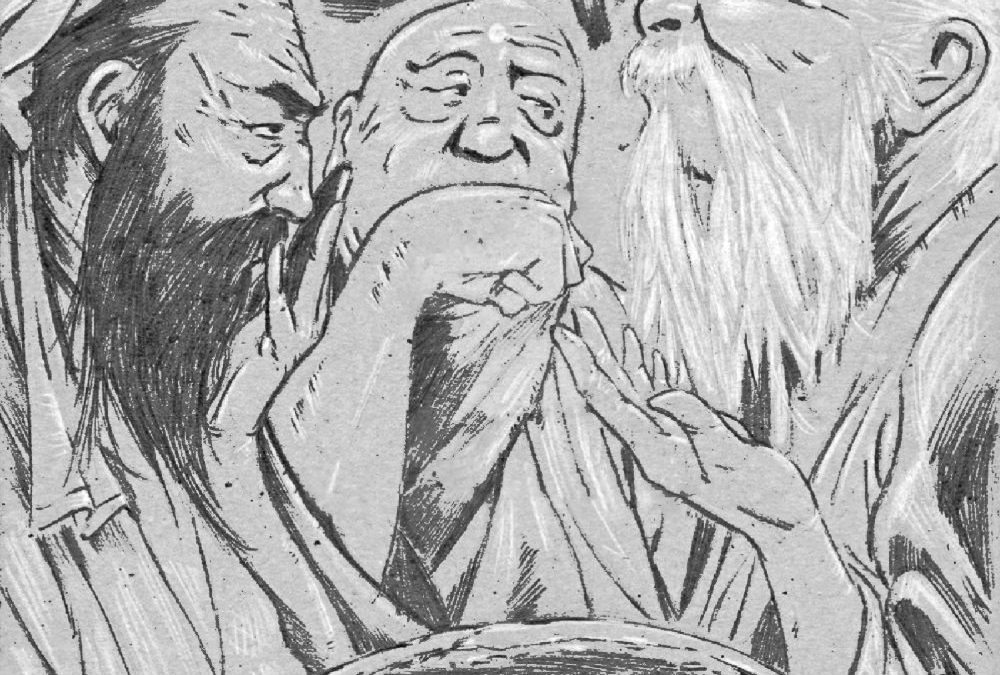In part one, I shared a simple truth about human beings that flies in the face of a lot of self-help ideologies and neo-cognitive therapies:
We aren’t in control of our thoughts and feelings.
(If you missed part one, you can read it here.)
Today, I want to point to what may seem an even odder piece of good news (that sounds like bad news):
No matter how hard you try, some things are going to go your way and some just aren’t.
If you’re wondering how I can possibly call that “good news”, let’s see if this picture is worth the thousand words or so I’ll spend explaining it…

This image, known as “The Vinegar Tasters”, has been the subject of many paintings and sketches over a few thousand years, and the three men in the image are said to represent Confucius, the Buddha, and Lao Tzu (the founder of Taoism). The differences between their reactions points to the varied emphasis of their teachings, a difference I often talk about as the difference between what is true “before the therefore” and what we conclude “after the therefore”.
All three men are tasting the same blend of sweet and sour flavors that make up the vinegar of life. Confucius looks disapproving, as though to say “Life is like vinegar, therefore we must attempt to control it as consistently and precisely as we can.”
The thoughtful Buddha reflects that “Life is like vinegar, therefore we must transcend it so we don’t have to suffer from it.”
The joyful Lao Tzu seems to know that “Life is like vinegar, therefore we get to savor each nuance of its flavor from sweet to sour and everything in between.”
In other words, before the therefore, life is just life; after the therefore, our experience of life gets created.
Here’s another far more prosaic example:
Imagine you and two friends (let’s call them “Connie” and “Bud”) are traveling together. You arrive late to your destination, and the only place that seems to be open is a non-descript Chinese restaurant. Connie is very particular about how each dish gets created, and goes into the kitchen to tell the chef how she wants her food prepared. Unless the chef follows the precise formulation Connie likes, she’ll be disappointed and post a rotten Yelp review.
Bud really desires a burger, but the restaurant doesn’t really have anything like that on the menu. At first he thinks he just won’t eat, but realizing that asceticism is no better than gluttony, he decides to simply eat enough to satisfy his body’s hunger and seek his contentment elsewhere.
You, on the other hand, have learned that you can enjoy pretty much any kind of food. You ask the waiter for today’s special, and even though it’s not something you would normally order, you look forward to whatever comes, knowing that when it’s on your plate you’ll throw yourself into the meal with gusto and delight in every nuance of its flavor.
In other words:
When you know you’re not in control of what comes out of the kitchen, you’re free to enjoy whatever comes.
And this is why knowing that despite your best efforts, some of your endeavors will still fail is such good news. You don’t need to puff yourself up when things go your way or beat yourself down when they don’t. Instead, you can throw yourself in to whatever you do without adding in any pressure to produce a particular result.
Next week I’ll bring you one more piece of good news (that sounds like bad news), but in the meantime, reflect on this:
How different would the game of life be if you knew that winning or losing wasn't up to you?Click To TweetI’ll look forward to speaking with you again next week…
With all my love,
![]()






